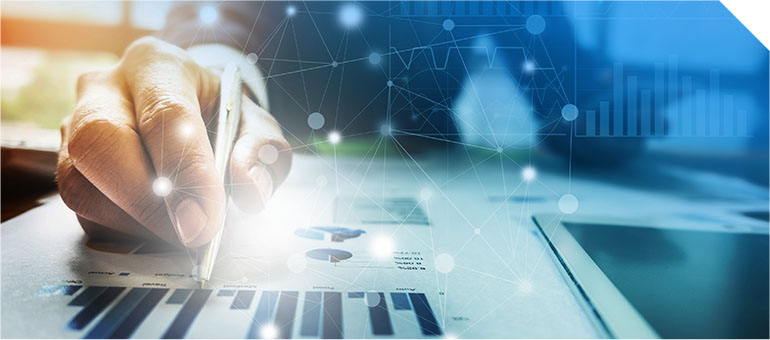What Is Due Diligence?
In a typical M&A deal, due diligence is the point in the process where sellers share all relevant information about a business with a potential buyer to move forward with the deal. In SEG deals, the majority of information has already been shared before reaching this stage to ensure that no unwanted surprises arise during this stage. Otherwise, re-trades might be a possibility.
Due diligence includes reviewing all financial records to assess financial risks and confirm growth opportunities, as well as examining liability obligations and binding agreements to determine legal-related exposure before executing a merger or acquisition. Due diligence for software companies can be broken down into several areas: Business diligence, accounting diligence, tax diligence, SaaS diligence, tech diligence, and legal diligence (more on this later).
In short, due diligence means providing all the receipts before purchase to give the buyer peace of mind about every component of the business they’re about to take on. Due diligence is arduous, intensive, and involves input from every faction of a business to be successful.
Due Diligence Period
Typically, the due diligence period comes after an LOI (letter of intent) is signed. However, that doesn’t necessarily mean any of the information imparted during due diligence comes as a surprise to the buyer.
In SEG deals, the due diligence phase is confirmatory. In other words, if you’re at the diligence stage of the process, the buyer shouldn’t be discovering any new information that is material. Otherwise, the purchase price or terms could be renegotiated and potentially cause a deal to fall through.
The Objective of Due Diligence
For sellers, the objective of due diligence is to get through without any adjustments to the price or terms of the deal. For buyers, the purpose of due diligence is to ensure all risks are accounted for and all potential value has been correctly interpreted.
It’s in the best interest of both buyers and sellers to make the due diligence process as smooth as possible and execute it as quickly as possible. Time can kill even the best deals.
Who is Involved in M&A Due Diligence?
Many parties are involved in due diligence, including lawyers, accountants, tax experts, company leaders, and more. It’s a group effort. Due diligence requires collecting key information across every facet of the business, aggregating it, sharing it in the data room, monitoring the pace of consumption, and making sure you didn’t miss anything in the process.
Managing M&A Due Diligence While Running Your Business
If the task seems daunting, that’s because it is. Running a business while also completing a successful due diligence process is like juggling 10 balls at a time – it takes skill and years of practice.
Often, sellers run into deal fatigue at this stage. Bringing on an M&A expert who specializes in due diligence services can help you push all involved parties along and keep momentum in a deal. Not to mention, relying on someone who’s been there, done that can help you avoid “death by a thousand papercuts”. If things come up during the due diligence process, you need an advocate to solve the issue (and mitigate risk from the start).

Why is Due Diligence Important?
The due diligence process is a critical stage in any M&A deal. Going through diligence smoothly ensures the deal doesn’t lose momentum for the seller and helps the buyer validate what they are purchasing. Also, fully disclosing details about the company protects sellers from criminal prosecution or future legal issues (if things come to that).
Due diligence is important because it protects both the buyer and the seller. Here are three reasons why a successful due diligence process is essential for any M&A transaction.
1. Due diligence offers protection for the buyer and seller
Successful due diligence helps buyers confirm what they are purchasing so they can avoid unnecessary risks. It also helps sellers get clarity on what risks they carry after the deal has closed.
For example, diligence for representation and warranties and IP ownership both clarify what the buyer and seller actually own moving forward, as well as what the seller can be held responsible for in the future. Clearing these up in diligence protects both parties from worse-case scenarios as well as offers assurance that the deal is worth it going forward.
2. Due diligence Can Prevent re-trades
Due diligence is important for sellers to avoid a re-trade. If a buyer uncovers any information that is potentially negative during the due diligence process, they can renegotiate the price and terms of the deal.
A re-trade can derail a transaction completely or pigeon-hole sellers into terms they weren’t anticipating. Re-trading typically occurs when new information is uncovered during due diligence (again proving the importance of due diligence as a confirmation stage). For SEG clients, re-trades are not common as we work diligently to ensure buyers have all necessary information before the due diligence period.
3. Due diligence can be a win-win for both parties
When done correctly, due diligence can be a win-win for both parties in an M&A deal. The buyer feels more comfortable about their expectations for the deal and assumed risk. The seller can provide information quickly to push a deal through.
In summary, due diligence is an important part of confirming the value to potential buyers, protecting sellers from future liability, and ensuring any deals aren’t interrupted by unexpected surprises.

6 Types of Due Diligence
What does due diligence entail when it comes to logistics and day-to-day activities? Most of it comes down to organization, communication, and timely response. That includes setting up a virtual data room with private access, responding in a timely manner to all data requests, collecting data internally, and quickly identifying miscommunications or potential issues.
Think lots of phone calls, long meetings, and communicating effectively internally and externally with the buyer. If it sounds like a lot for one company to handle, it is. After doing this for 30 years, we’ve learned that breaking down each area of due diligence keeps the process tidy and efficient.
At SEG, we help our clients break down the process into six different types of due diligence:
- Business Due Diligence
- Accounting Due Diligence
- Tax Due Diligence
- Software Due Diligence
- Technology Due Diligence
- Legal Due Diligence
Each area represents a unique and integral part of any business. Let’s dive into each type and its importance to help you ensure you’re making the most of your due diligence.
Business Due Diligence
Business due diligence includes all information regarding the core tenants of your business model and operations. Think of this section as everything operations focused across the business, like a gut check for your business health.
Some items included in business due diligence include:
- Income statements
- Revenue reports
- Sales and marketing activity/pipeline
- Financial balance sheets
- Customer support data
- Development backlog, code count, and product architecture
Accounting Due Diligence
Accounting due diligence involves reporting around all the financial areas of the business, including cash flow, customer contracts, income statements, expenses, liabilities, and other related requests.
Some items included in accounting due diligence include:
- Income statements
- Cash agreements and bank reconciliations
- Accounts receivable
- Prepaid expenses and other assets
- PPE and depreciation
- Accounts payable
- Accrued liabilities
- Deferred revenue
- Contracts, commitments, and contingencies
Tax Due Diligence
Tax due diligence is one of the more straightforward areas of examination during a M&A deal. It involves reporting all relevant tax information over the last few years, as well as providing any relevant documentation for federal forms.
Some key areas of tax diligence to consider:
- Access to tax advisors and personnel
- Current legal status
- Federal, state, local, and foreign income tax returns
Software Due Diligence
Software & SaaS companies have unique areas requiring disclosure in a due diligence process. This includes relevant information about the software platform, service, security and compliance, and any relevant methodology and processes.
Below is a quick list of software due diligence checklist items:
- Supplier/asset manager information
- Platform information
- Connectivity information
- Service information
- Disaster recovery plans
- Quality checks of service and objectives
- Security and compliance information
- Application messaging and data flows
- Performance management
- Client support
Technology Due Diligence
Technology due diligence looks very similar to software due diligence but entails reporting on all information surrounding business application operations rather than the software the company is selling. This can include information about the company’s help desk, disaster planning, and network, servers, and technology enabling the business to run.
A few areas to consider for technology due diligence:
- Supplier/asset manager information
- Platform information
- Network architecture
- Business applications operations
- Disaster recovery plans
- Quality checks of service and objectives
- Security and compliance information
- Application messaging and data flows
- Methodology and processes
- Help desk support
Legal Due Diligence
Conducting legal due diligence ensures that all liabilities, insurance, litigation, and intellectual property matters are considered as they relate to the business and employees.
Some of the areas to cover in legal due diligence include:
- Corporate matters
- Litigation and contingencies
- Insurance matters
- Intellectual property
- Property
- Regulatory matters
- Labor and employee matters
- Material contracts
Interested to learn more about what each diligence area entails?
Download our full checklist here.

How long Does Due Diligence take?
A typical due diligence process will take anywhere from 30, 60, or potentially 90 days. However, unforeseen issues can delay this timeline even further. To be clear, due diligence should never be rushed. However, time truly is of the essence. Time kills deals, and to reiterate, due diligence is the most vulnerable part of the entire M&A process.
Due diligence is the stage when the seller has the least amount of leverage with the buyer. By not acting in a timely manner and doing everything in their power to push due diligence efforts along, the buyer might lose interest and move on.
“If due diligence keeps getting extended over and over, it can get to the point where the deal is eventually forgotten,” writes Jonathan Herpy at Forbes.
Increased time means increased costs when it comes to due diligence — cost in extended hired help and also in deal valuation. Underestimating the process can be disastrous.
How can you make sure to move along due diligence as quickly as possible? By having a due diligence plan in place beforehand (from day one!), and correctly estimating the time and effort required to execute due diligence.
Here are some extra tips to help you along:
- DO have due diligence documents prepared beforehand (business, tax, legal, software documents).
- DO have a plan for the day-to-day operation of your business so due diligence doesn’t detract from it.
- DO be prepared for the added costs of expert help (lawyers, tax experts, M&A experts, etc.).
There are several other critical considerations to keep in mind as you go through this stage of the process, which can be found in our blog “Due Diligence Do’s and Don’ts.”

Due Diligence Services: 8 Signs You Need an Advisor
If you’ve never performed open-heart surgery before, it’s extremely unlikely you’ll be able to enter an operating room and do it successfully the first time. The same is true for due diligence: going for it on your own isn’t the best option.
How can you know if you should partner with an M&A advisor? If you agree with any of the statements below, it might be time to look for a firm that specializes in due diligence services.
- I want to remove emotion from the deal.
- I want an advisor who understands buyer motives and has historical knowledge of buyer actions in the past.
- I’m feeling emotional about my business and care about the sale of the company.
- My board and other owners can’t agree on key areas of the sale.
- ARR is declining and I need to focus on my business.
- I’ve never sold a business before, don’t have a background in finance, and am not well versed in reading legal documents.
- The buyer’s team is large and experienced.
- I’m not organized, detail-oriented, or meticulous.
Conducting due diligence in an M&A process is anything but simple; it’s time-intensive, high-cost, and it can make or break a deal. However, done correctly, due diligence can ensure your valuation, protect you from potential liabilities, and help the buyer know what they’re getting into.
Make sure you keep in mind these three key takeaways:
- Time is of the essence: Move quickly or suffer “death by a thousand papercuts”.
- Prepare, prepare, prepare: We recommend sharing 80% of diligence information beforehand to ensure no surprises pop up. Our checklists can help the process go more smoothly.
- Work with an expert: Just as you wouldn’t trust a novice to conduct surgery, it’s unwise to go through diligence on your own. Bringing in an M&A expert is well worth the cost.
At Software Equity Group, we help software companies navigate the tricky waters of due diligence from day one of their journey. If you think you might benefit from an M&A advisor, reach out to us today to learn how we can help you get the best deal possible.














